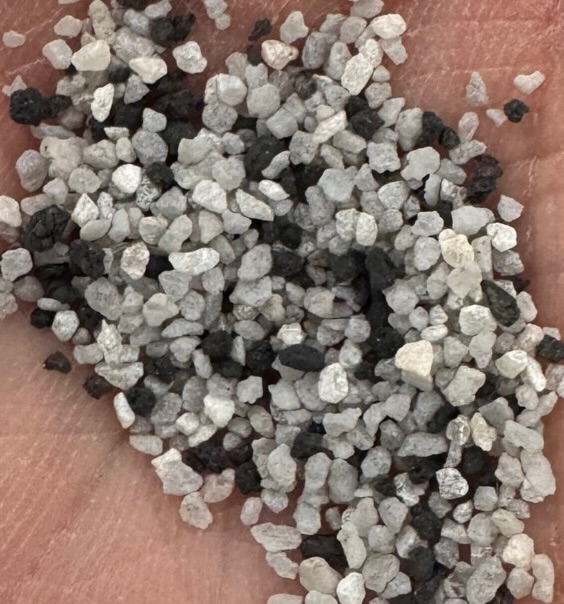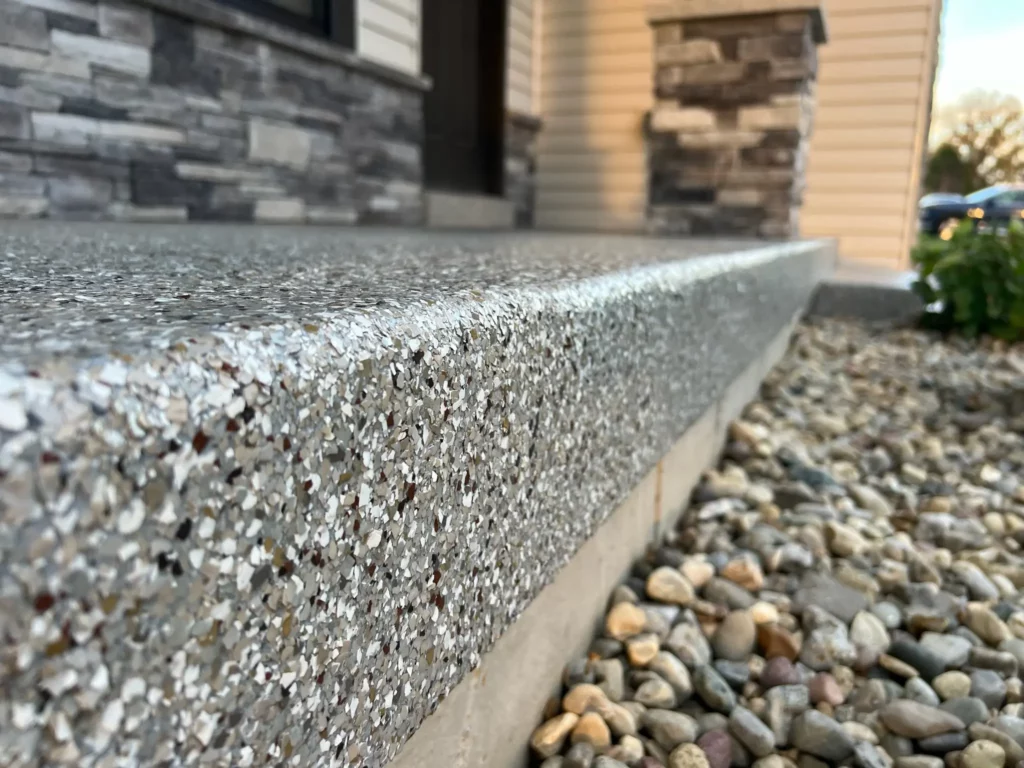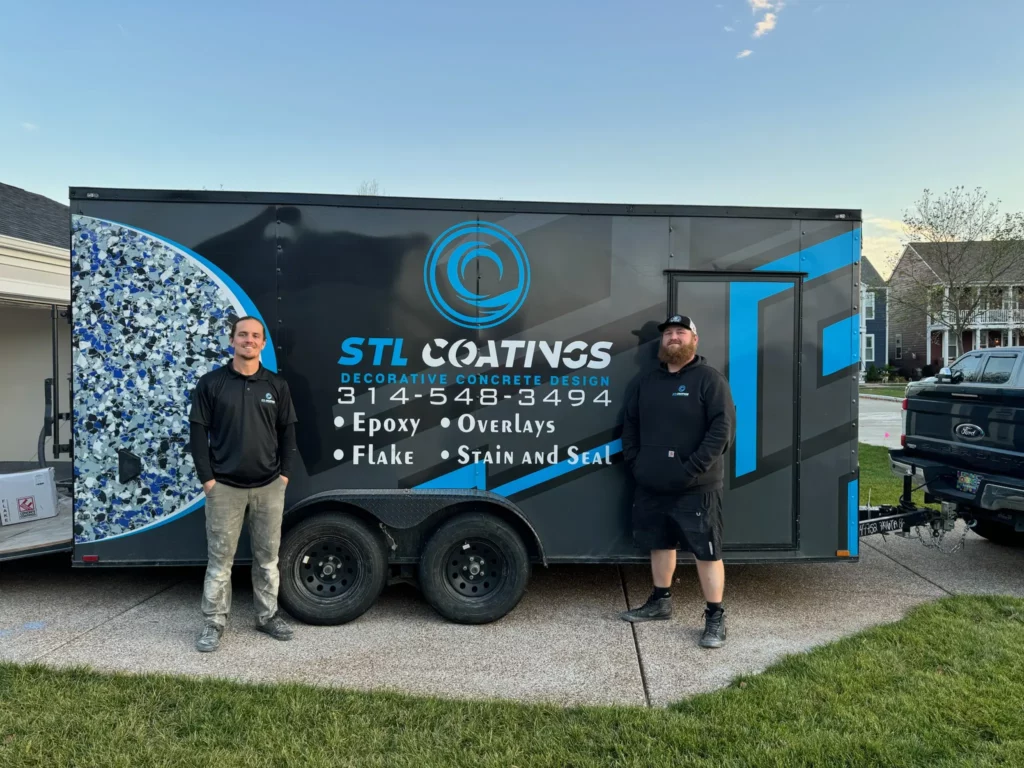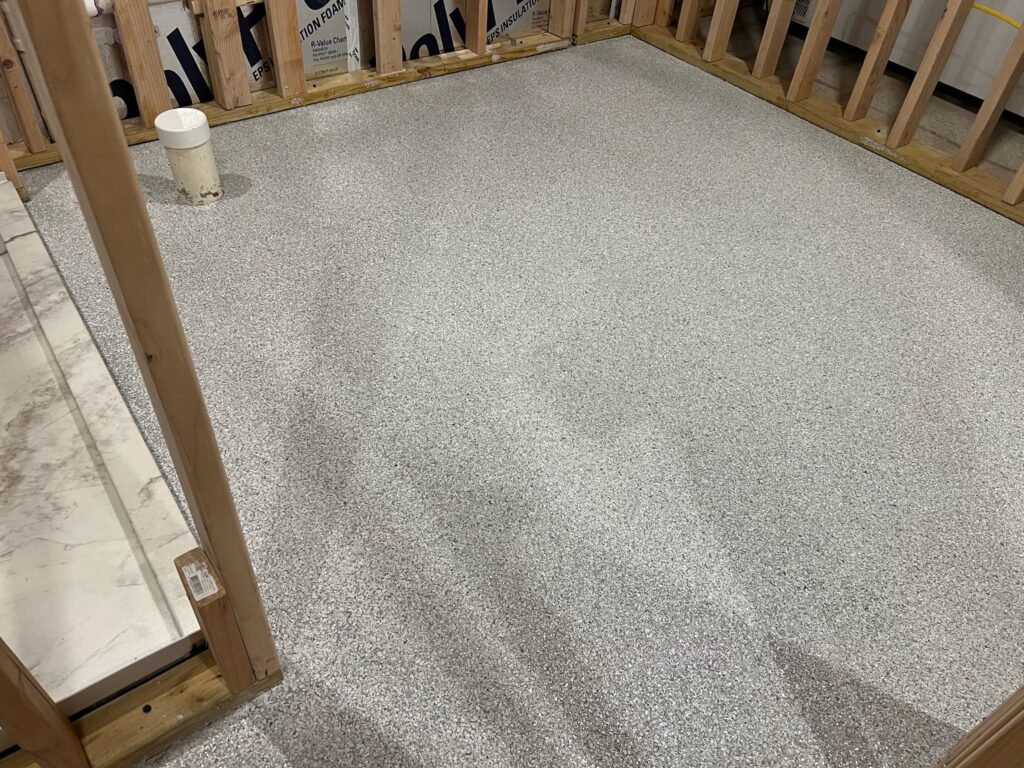Introduction
You’ve decided that epoxy flooring is the right choice for your space. It’s strong, durable, and looks great. But now comes the tricky part—deciding between quartz and flake flooring. Both are popular and effective, but they are suited for different needs. How do you decide? Don’t worry, here at STL Coatings, we are here to make sure your flooring project is a success!
Quartz and flake flooring are two of the most common types of epoxy finishes. They are both durable and customizable, but they have some key differences in texture, appearance, and applications. In this post, we’ll explain what each option offers and help you decide which is best for your needs.
What Is Quartz Flooring?
Quartz flooring is made by combining epoxy resin with colored quartz granules. This mix creates a smooth and tough surface that is ideal for areas where durability and slip resistance are important.

Key Features
- Durability: Quartz flooring is built to last. It is highly resistant to wear and tear, making it a good choice for spaces that see a lot of foot traffic or heavy equipment.
- Slip Resistance: The quartz granules give the floor a grippy texture, reducing the risk of slips and falls.
- Fine Texture: Quartz has a uniform, sand-like finish that feels smooth yet secure underfoot.
Style and Aesthetic
Quartz flooring has a clean and polished look. It’s available in a wide range of colors, so you can choose one that matches your style or the design of your space. Whether you prefer neutral tones or something bold, quartz flooring offers flexibility while maintaining a simple, consistent finish.
What Is Flake Flooring?
Flake flooring, also known as chip flooring, is made by sprinkling decorative chips (usually vinyl or mica) onto a layer of epoxy. A clear topcoat is then applied to seal the surface and create a durable, textured finish.

Key Features
- Textured Surface: The decorative chips create a slightly rough surface, which adds grip and helps with slip resistance.
- Customization Options: Flake flooring can be tailored to your preferences. The chips come in many sizes, colors, and combinations, allowing you to create unique patterns and designs.
- Versatility: This type of flooring works well in a variety of settings, from garages and basements to retail spaces and showrooms.
Style and Aesthetic
Flake flooring is bold and dynamic. The chips give it a speckled or layered appearance that can mimic natural stone or terrazzo. You can mix and match colors to achieve the look you want, whether it’s subtle or eye-catching.
Key Differences Between Quartz and Flake Flooring
Texture
- Quartz: Quartz flooring has a fine and smooth texture, making it feel uniform underfoot.
- Flake: Flake flooring has a textured surface due to the decorative chips, which creates a slightly rougher feel.
Durability
Both quartz and flake flooring are strong and long-lasting. However, quartz is often chosen for industrial and commercial spaces that experience heavy use, while flake flooring is more popular in residential or decorative spaces.
Appearance
- Quartz: The look is sleek and minimal. It’s ideal for clean, simple designs.
- Flake: Flake flooring offers more variety. Its patterns and colors can be bold or subtle, depending on your preferences.
Applications
- Quartz: Commonly used in industrial settings, kitchens, and warehouses where durability and slip resistance are crucial.
- Flake: Popular in garages, basements, retail spaces, and recreational areas where style and functionality are equally important.

Choosing the Right Option for You
To make the right choice, consider the following factors:
Where Will It Be Installed?
If the flooring will be in an area with heavy machinery, constant foot traffic, or exposure to moisture, quartz flooring may be the better choice. For spaces that need a balance of aesthetics and durability, like a garage or showroom, flake flooring is a great option.
What Style Do You Prefer?
Quartz flooring is simple and streamlined, while flake flooring offers more creative possibilities. Think about whether you want a clean, uniform look or something with more texture and color.
What Are Your Practical Needs?
Both quartz and flake flooring are slip-resistant, but quartz offers a slightly finer texture that is ideal for spaces where safety is a top priority. Flake flooring’s textured surface, on the other hand, is better for hiding imperfections and stains.
Maintenance and Longevity
Both quartz and flake flooring are low-maintenance options, which is one reason they are so popular.
Quartz Flooring Maintenance
Quartz floors require regular sweeping and occasional mopping to keep them clean. The smooth surface resists stains and scratches, making it a great choice for high-traffic areas.
Flake Flooring Maintenance
Flake flooring is easy to maintain, too. Its textured surface helps mask dirt and wear, so it looks good even between cleanings. A simple sweep or mop will keep it in good shape.
When installed and cared for properly, both options can last for many years.

Conclusion: Quartz vs Flake Flooring
Quartz and flake flooring are both excellent choices for epoxy surfaces, but they serve different purposes. Quartz flooring is smooth, durable, and great for industrial or high-traffic spaces. Flake flooring is textured, customizable, and ideal for residential or decorative areas.
By understanding the features and benefits of each type, you can make an informed decision. Whether you need the toughness of quartz or the creative options of flake, epoxy flooring is a smart investment that will look great and stand the test of time.
What’s Next
Still unsure about which flooring to choose? Contact us today for a free consultation. Our experts can help you weigh the pros and cons, show you samples, and recommend the best option for your space.
FAQ
Can quartz or flake flooring be used outdoors?
Both options can be used in covered outdoor areas, but you’ll need a UV-resistant topcoat to protect the epoxy from sun damage.
How long does installation take?
Most installations take 1 day, depending on the size of the space. After application, the epoxy needs 24–48 hours to fully cure.
Are quartz and flake flooring equally slip-resistant?
Both types provide good slip resistance, but quartz flooring has a slight edge in environments where maximum grip is important.
Which is more budget-friendly: quartz or flake flooring?
Costs vary based on the size of the project and materials used. Flake flooring often offers more flexibility in terms of budget since the chips can be customized to suit different price ranges.
By exploring these options, you can feel confident choosing a flooring solution that meets your needs and fits your style. Let us help you make the right choice!
